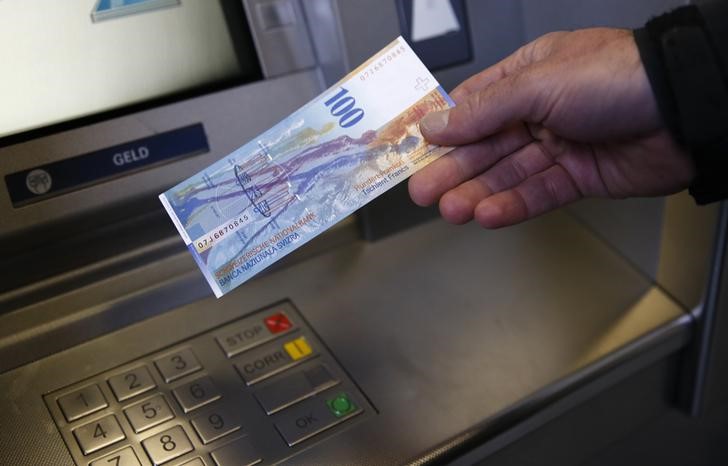ZURICH (Reuters) - The Swiss National Bank is keeping all options open after scrapping a cap on the franc against the euro which would have cost 100 billion francs (76 billion pounds) to defend this month alone, one rate-setter told a Swiss paper.
"We have turned away from the cap. We are keeping all our monetary policy options open," SNB board member Fritz Zurbruegg told Blick newspaper, when asked whether the central bank might cap the franc again to prevent the economy from becoming unbalanced by funds seeking shelter from the global financial crisis.
His comments come a source told Reuters on Wednesday that the European Central Bank is homing in on a programme that would enable it to buy 50 billion euros ($58 billion) in bonds per month from March.
The SNB has defended the sudden removal of its three-year-old cap on the franc and called the currency's ensuing surge against the euro and plunge in stocks over fears for the export-reliant Swiss economy "overdone".
Zurbruegg echoed comments made earlier this week defending the move, saying it hadn't abandoned the cap at the request of the ECB. He said the SNB would have had to spend roughly 100 billion francs in January alone to defend the currency cap.
Zurbruegg said it was too early to gauge whether the economy might enter recession and the central bank had no indication Switzerland could enter a deflationary spiral.
"There will be a damper on economic growth. The extent is dependent on where the (franc) appreciation settles," he said.
Already bloated from intervening in 2012, forex reserves at the central bank swelled to 495.104 billion francs in December, after a rapidly weakening Russian rouble pushed the currency up further, prompting the SNB to step in again.
Zurbruegg said scrapping the cap, which stunned the markets, caused losses at major banks and wiped out many small-scale investors and the brokerages that serve them, was one of several options the SNB considered. It also looked at capping the franc against a basket of euro and U.S. dollar, he said.
"We came to the conclusion that the release of the exchange rate was the best option," Zurbruegg said.
